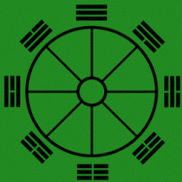-
Content count
392 -
Joined
-
Last visited
-
Days Won
4
Everything posted by Forestgreen
-

Buddhist/Daoist Views Related to Xing/Dharmakaya(Split From What do you think about Neidan(內丹)?)
Forestgreen replied to SodaChanh's topic in Daoist Discussion
Disagreement of how texts should be interpreted has been the core of religious discussions for millennia. Please feel free to pick my post apart in that thread. -

Buddhist/Daoist Views Related to Xing/Dharmakaya(Split From What do you think about Neidan(內丹)?)
Forestgreen replied to SodaChanh's topic in Daoist Discussion
The method described does not correspond to "refining the elixir nine times over" (pg 95) which leads to celestial immortality, it conforms to methods relevant for human/earth/spirit immortality. -

Buddhist/Daoist Views Related to Xing/Dharmakaya(Split From What do you think about Neidan(內丹)?)
Forestgreen replied to SodaChanh's topic in Daoist Discussion
And it is entirely possible to have the same realization with energy work, why so one-sided?. And it is possible to do a lot of work and not having a realization about reality, but having other experiences that a tradition values and call spiritual. It is even possible that, lets say a theravada buddhist, doesn't call it energywork but still practice it, because nomenclature differs between traditions and there is more to it than breathing methods and pushing energy into the head. Just imagine the possibilities😁 I feel that you are playing with words. If you do not think that practice causes realization, why did you spend so much time practicing? Why do you mention that people with a few months of practice might get short spiritual experiences, instead of saying "I watched football with the gang last saturday, and darn if we all didn't have a glimpse of reality"? -

Buddhist/Daoist Views Related to Xing/Dharmakaya(Split From What do you think about Neidan(內丹)?)
Forestgreen replied to SodaChanh's topic in Daoist Discussion
That is, of course, not true. A more precise statement would be that no amount of post heaven energetic work, in it self, will result in realization. But used as a bridge towards pre heaven energetics, it is as good as any other bridge. But since you have stated that you weren't taught about red and white bindu, this is outside of your experience. Which is fine, much of that you write about is outside of my experience, and some of it I have doubts about. -

Buddhist/Daoist Views Related to Xing/Dharmakaya(Split From What do you think about Neidan(內丹)?)
Forestgreen replied to SodaChanh's topic in Daoist Discussion
His variety if that mudra differs from (insert style here). It differs from how I do it, and most likely he has another goal with it. -

Buddhist/Daoist Views Related to Xing/Dharmakaya(Split From What do you think about Neidan(內丹)?)
Forestgreen replied to SodaChanh's topic in Daoist Discussion
And therefore useful. We all get attached to name and form, and any method that aids in releasing that bond is useful (until it is not). Isn't that one of the reasons that energetic practices can be useful? We dissolve the attchment to the obvious and material, and gradually learn to sense (and identify with) something more sublte. And then (rinse, repeat). -

Buddhist/Daoist Views Related to Xing/Dharmakaya(Split From What do you think about Neidan(內丹)?)
Forestgreen replied to SodaChanh's topic in Daoist Discussion
It is difficult, mixing terms. Some cross over better than others. -

Buddhist/Daoist Views Related to Xing/Dharmakaya(Split From What do you think about Neidan(內丹)?)
Forestgreen replied to SodaChanh's topic in Daoist Discussion
I would disagree with that. The golden elixir is pre heaven, so exist before manifestation. -

Buddhist/Daoist Views Related to Xing/Dharmakaya(Split From What do you think about Neidan(內丹)?)
Forestgreen replied to SodaChanh's topic in Daoist Discussion
Because this section is more interesting. -
A phenomenon called wind.
-

Buddhist/Daoist Views Related to Xing/Dharmakaya(Split From What do you think about Neidan(內丹)?)
Forestgreen replied to SodaChanh's topic in Daoist Discussion
I would disagree with this. The aquired mind is the basis for most peoples experiences. Reality is always there, experiencing the world through it is quite uncommon without quite a bit of practice. -

What are your experiences with internal alchemy? Have you seen any results from it?
Forestgreen replied to الضفدع الحكيم's topic in Daoist Discussion
I recently saw a podcast from Nathan Brine, where he basically stated that there are many practices out there that are called neidan. They leads to very different results, and could as well be called qigong, neigong, or meditation. The past 30 years, I have tried a handful of different systems, and at the time they were probably useful. At least they got me to where I am now. These days, I practice a pre heaven method. So, no ldt, no microcosmic orbit, no experiences of light. It's all about zooming in on pre heaven reality. What I do is what is described in the WuZhenPian (the 16 regulated verses), which differs from the methods described in for example the zhong-lu chuandao ji and the lingbao bifa.


